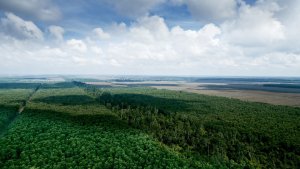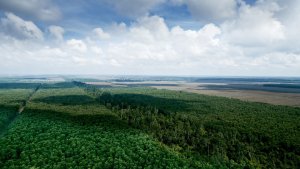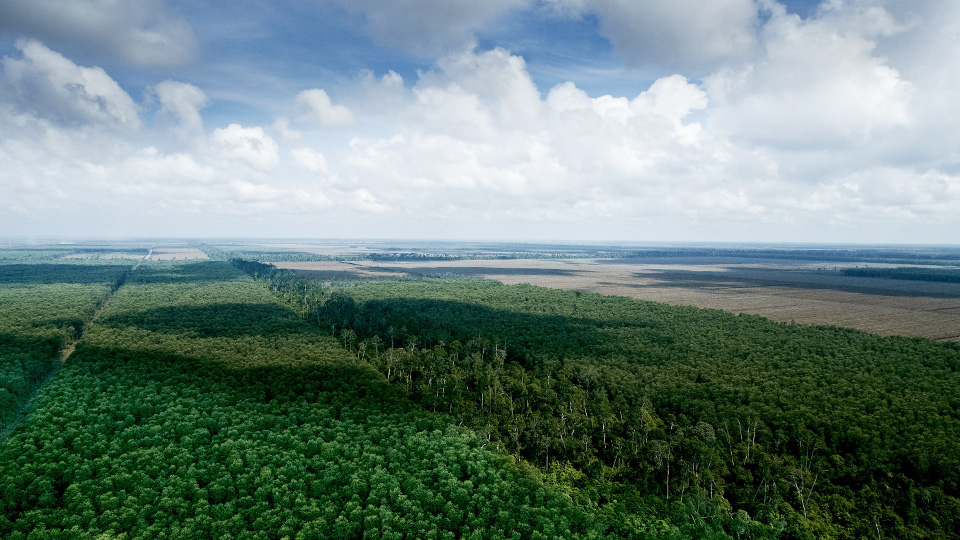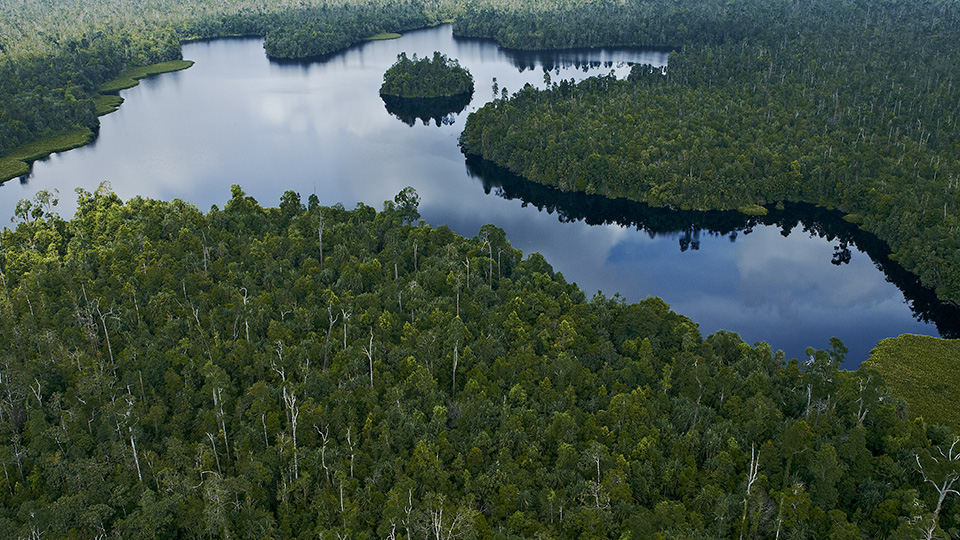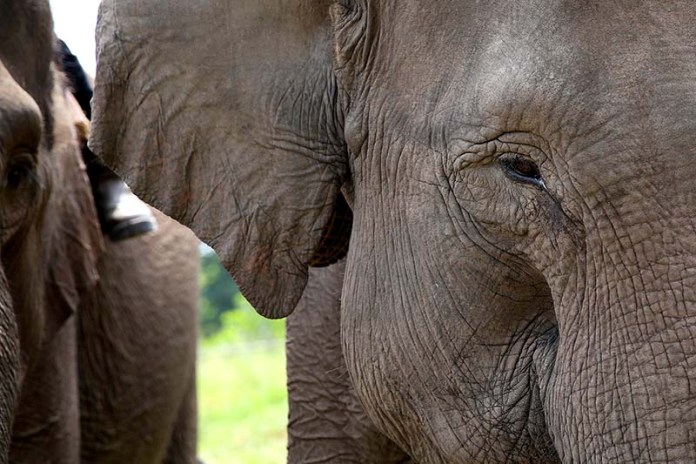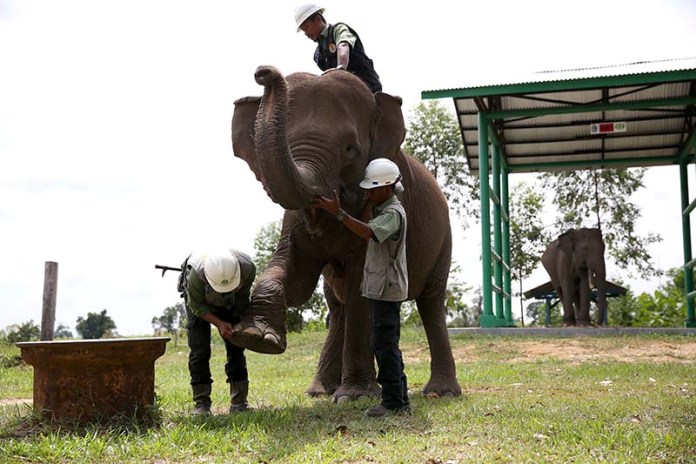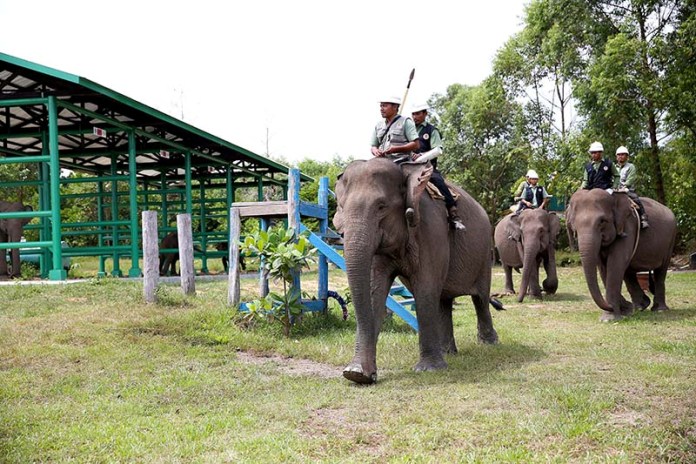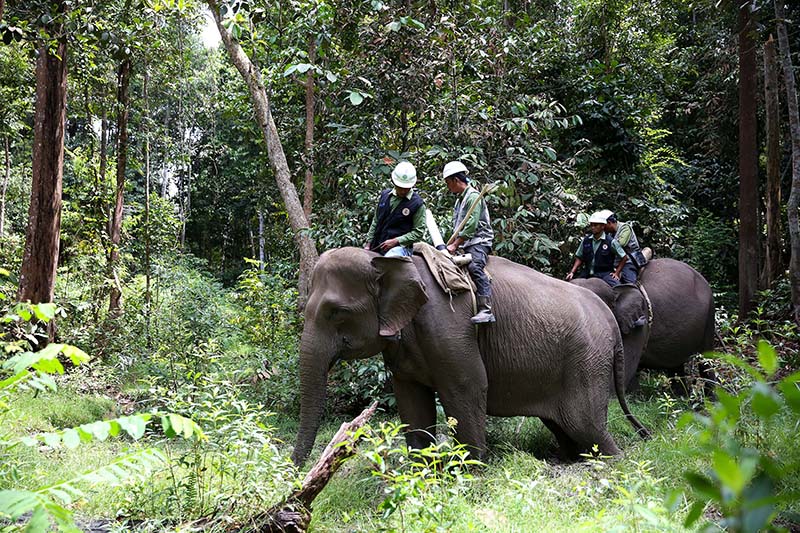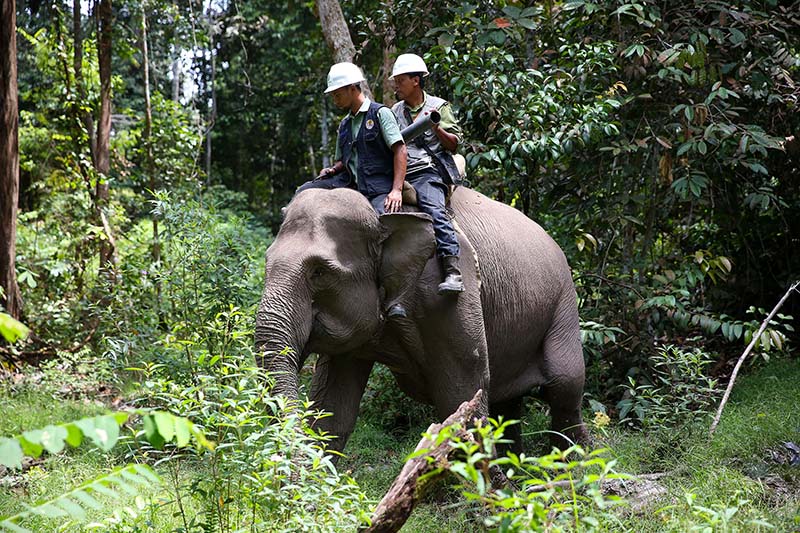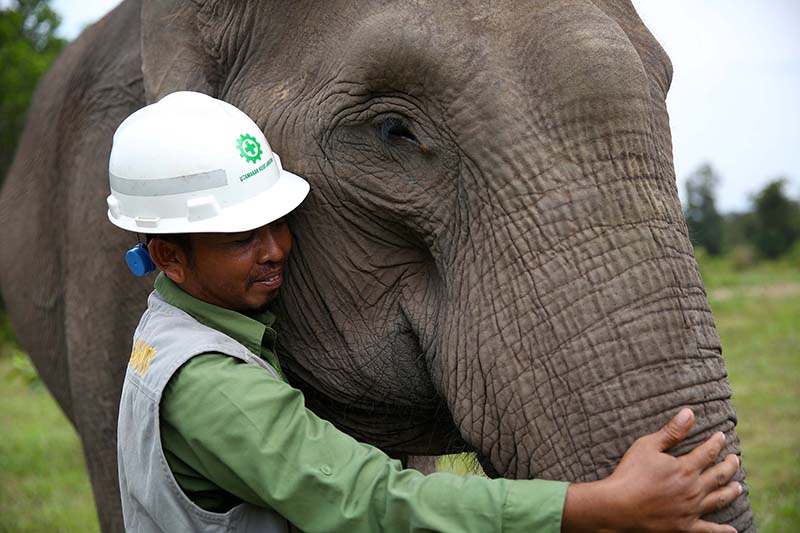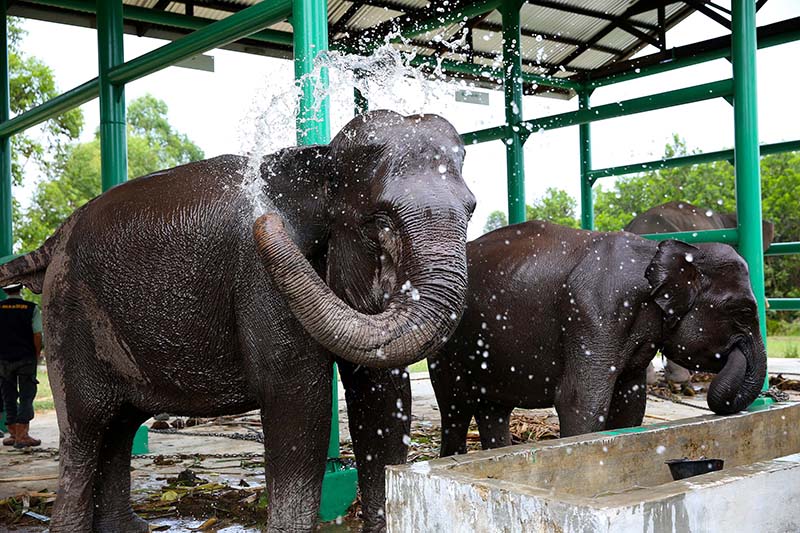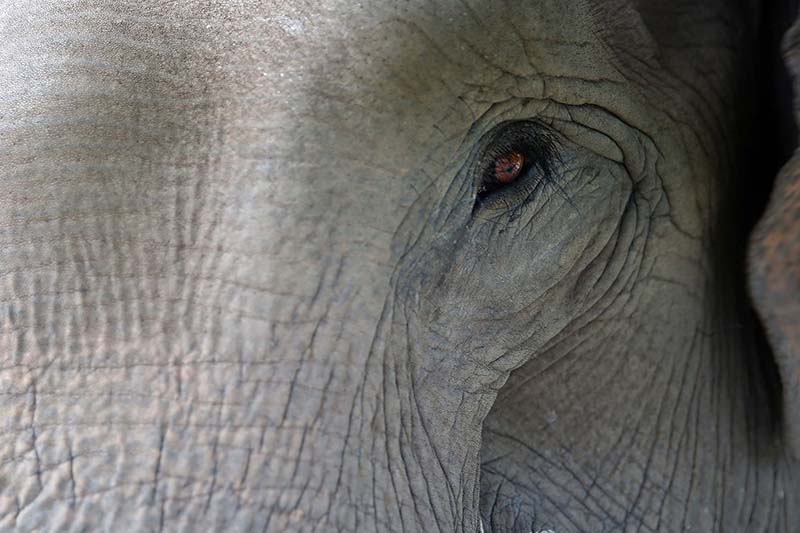In pictures: APRIL’s Elephant Flying Squad
- Details
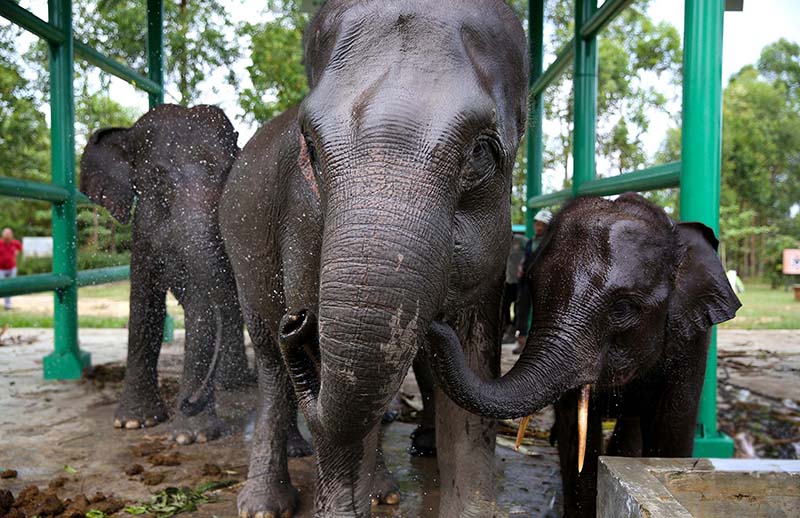
As their natural habitat shrinks, wild elephants in Sumatra are driven closer to populated areas, which leads to conflict between humans and animals. To help combat this APRIL set up the Elephant Flying Squad to guide wild elephants away from human settlements and back into the forest.
The camp at Ukui, in Riau Province, is home to four adult elephants. They have been cared for by APRIL since 1994, though the Flying Squad program was not set up until 2005. The elephants and their handlers patrol the forest for wild elephants and help keep them away from populated areas.
The elephants are cared for by a team of nine mahouts and two veterinarians who conduct regular health checks. Under their care the elephants have thrived, bolstering their numbers with the birth of baby Meri in 2009, and Raja Arman two years later.
When on patrol each elephant carries two mahouts. The mahout at the front guides the elephant, while the second man’s job is to deal with any wild elephants they encounter.
The mahouts carry a long pole and a plastic air cannon, which can be used to create a loud noise to encourage wild elephants to move on.
Dealing with wild elephants is a little like driving very large cattle – they are typically happy to follow where the Flying Squad leads. By guiding them away from populated areas the Flying Squad has been able to reduce human-elephant conflict in Riau, which can lead to the deaths of both people and animals.
The bond between elephant and mahout is a strong one. “I treat the elephants like a part of my family,” says mahout Parman.
It’s not all hard work. At the end of a long patrol the elephants enjoy a well-earned bath. An adult elephant can drink up to 40 gallons of water a day.
WWF credited APRIL’s Elephant Flying Squad as one of the reasons for a dramatic fall in elephant deaths in Sumatra last year, down to four from a total of 10 in 2015.
You can read more about the formation of the Elephant Flying Squad here.
More Articles

